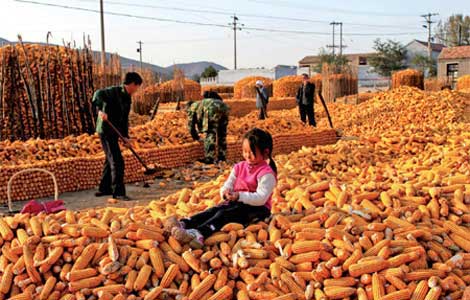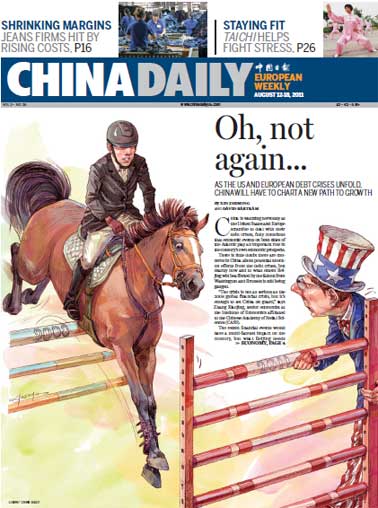Learning our lessons
Updated: 2011-08-12 11:01
(China Daily European Weekly)
Safety worries have replaced concerns about the affordability of the nation's high-speed railways since the fatal collision on the Ningbo-Wenzhou line on July 23.
The outcome of the Ministry of Railways' initial botched response to the tragedy is that people now have doubts about traveling on the once enthusiastically anticipated high-speed trains.
The lack of transparency in the days after the tragedy brewed suspicions not only about the possibility of a cover-up by the ministry, but also about the desirability of the "great leap forward" the nation's high-speed trains were supposed to be.
To what extent are the ministry's safety-related assurances and reassurances credible? Have we been too hasty and too optimistic in developing our high-speed railways? What is the sensible approach to the lines now planned and those being built?
The shadow of July 23 lies too heavy over tracks not to invoke second thoughts.
The latest investigators into the causes of the accident unveiled by the State Council look promising, because, on the one hand, they keep a reasonable distance from the ministry, and, on the other, they are all competent professionals who will be able to fulfill the task assigned them. And the absence of any officials from the ministry may be a significant factor in reassuring the public about the legitimacy of their findings.
Although the top priority remains finding out the true cause of the accident, properly executing the decisions to conduct a safety check of the country's current high-speed railways and to conduct safety reviews of the lines yet be built are essential for the present and future of railway development in the country.
Because of their high speeds, express railways need to be rigorously checked to ensure they are safe. That is why it is extremely important to identify all the factors that contributed to the Wenzhou disaster. It is imperative that no question is left unanswered.
Thorough and comprehensive safety checks are essential because that is the only way to detect and plug potential safety loopholes. So the State Council's proposal that the safety reviews go beyond the immediate causes and include design, manufacturing and management, must be faithfully carried out.
The Ministry of Railways has promised to give "honest and responsible answers" to our questions. But this is not a matter as simple as the credibility of an institution. It has more to do with the future of a promising sector of the national economy.
Lowering operation speed is the best choice that can be made before we become fully conscious of the safety aspect.
However, a single accident, bloody as it was, should not deter us from developing express railways, which hold strategic significance for our future, but that is on one condition, that we learn from past wrongs.
E-paper

My Chinese Valentine
Local businesses are cashing in on a traditional love story involving a cow herder and a goddess
Outdoor success
Lifting the veil
Allure of mystery
Specials

Star journalist leaves legacy
Li Xing, China Daily's assistant editor-in-chief and veteran columnist, died of a cerebral hemorrhage on Aug 7 in Washington DC, US.

Sowing the seeds of doubt
The presence in China of multinationals such as Monsanto and Pioneer is sparking controversy

Lifting the veil
Beijing's Palace Museum, also known as the Forbidden City, is steeped in history, dreams and tears, which are perfectly reflected in design.
